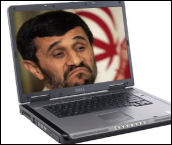 The Bureau of Industry and Security (“BIS”) just released settlement documents pursuant to which a regional sales manager at PPG agreed to a $500,000 penalty arising out of one unlicensed export of EAR99 epoxy paint. The paint, valued at $25,0000, was allegedly for use by a Chinese company constructing a nuclear power facility for the Pakistan Atomic Energy Commission. This export required a license because PAEC is on the BIS Entity List. It may also have required a license under the end-use policy in section 744.2 of the Export Administration Regulations depending on the nature of the facility and whether it was subject to IAEA inspections or not. The settlement documents suspended all but $15,000 of the penalty, which are required to be paid with an initial payment of $5,000 and then four quarterly payments of $2,500.
The Bureau of Industry and Security (“BIS”) just released settlement documents pursuant to which a regional sales manager at PPG agreed to a $500,000 penalty arising out of one unlicensed export of EAR99 epoxy paint. The paint, valued at $25,0000, was allegedly for use by a Chinese company constructing a nuclear power facility for the Pakistan Atomic Energy Commission. This export required a license because PAEC is on the BIS Entity List. It may also have required a license under the end-use policy in section 744.2 of the Export Administration Regulations depending on the nature of the facility and whether it was subject to IAEA inspections or not. The settlement documents suspended all but $15,000 of the penalty, which are required to be paid with an initial payment of $5,000 and then four quarterly payments of $2,500.
BIS managed to parlay one export into two violations by charging the sales manager both with conspiring to violate the regulations and with aiding and abetting a violation of the regulations. The documents allege that the sales manager conspired with another sales employee, a distributor and a freight forwarder and that he aided and abetted the export by his employer. By recharacterizing one export as two violations and by imposing the maximum penalty for each, the agency was able to ring up a $500,000 penalty. I suppose that the agency figured they were giving the sales manager a break by not charging him with solicitation, acting with knowledge and misrepresentation in connection with the one export to run the tally up $1.25 million.
Do you remember when BIS said that with the new and improved $250,000 penalty authority, the days of piling on offenses to run up the penalty amount were over? Well, that didn’t last long did it? I suspect we are about to here a plea from BIS for authority to impose $1,000,000 for each violation.
Of course, with the $485,000 hanging over him, woe betide the sales manager if he is a day late or a dollar short in any of his installment payments. BIS will own his house, and he and his family will be living in a refrigerator box under a freeway overpass.

 Posted by
Posted by  Category:
Category: 

 Today the Bureau of Industry and Security (“BIS”) published a
Today the Bureau of Industry and Security (“BIS”) published a  Talk about late fees. The Bureau of Industry and Security (“BIS”) responded to a payment under a
Talk about late fees. The Bureau of Industry and Security (“BIS”) responded to a payment under a  The Fayetteville Observer
The Fayetteville Observer  New-York based electronics wholesaler
New-York based electronics wholesaler 

